Dandelion Benefits, Uses & Properties
The more I get to know about plants the more I look around me and SEE. Dandelions (Taraxacum officinale) have always been ‘invisible’ to my eyes because (I suppose) it is a plant that grows everywhere and it just doesn’t seem to mind where this is.
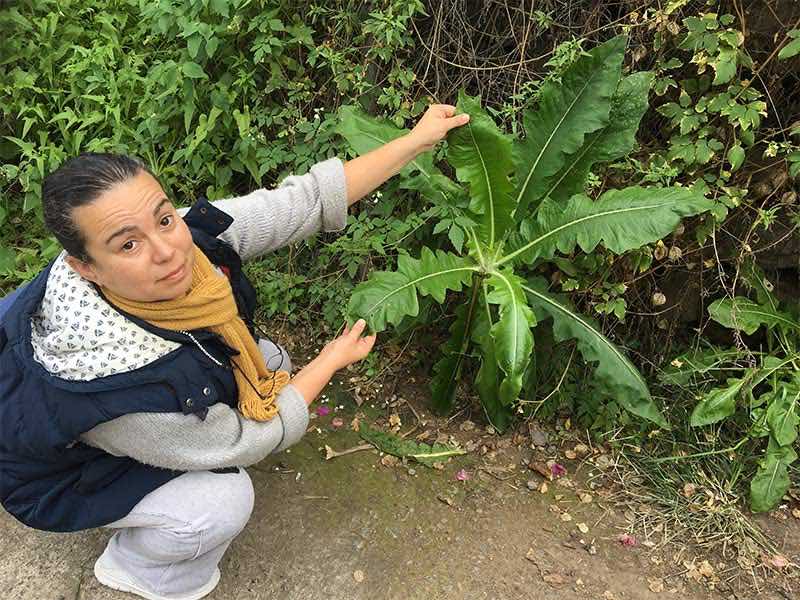
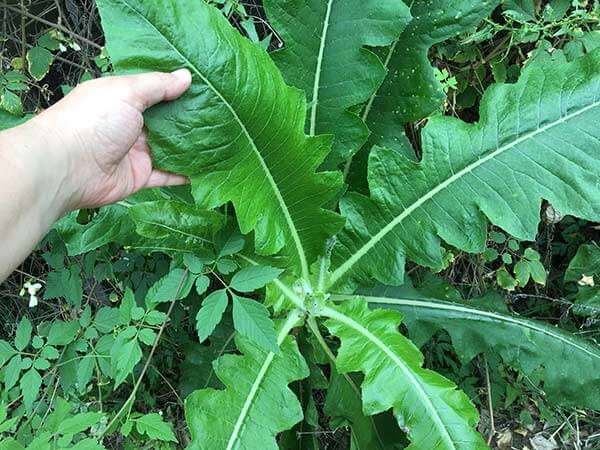
Somehow I’ve dismissed plants that grow on the side of the roads (as dandelions do)… How arrogant of me! These truly humble plants are so strong, tenacious and eager to live that they have learnt to survive in the most difficult of corners. In my (new) eyes they’re survival plants, not weeds.
About Dandelions

Dandelion is a herb. According to webMD (below) there’s not enough evidence to suggest dandelion makes a difference when it comes to its medicinal value but I’m sure many people would disagree with this. Here’s more on what it says:
Dandelion is used for loss of appetite, upset stomach, intestinal gas, gallstones, joint pain, muscle aches, eczema and bruises. Dandelion is also used to increase urine production and as a laxative […] It is also used as skin toner, blood tonic and digestive tonic. Some people use dandelion to treat infection, especially viral infections and cancer. In foods, dandelion is used as salad greens, and in soups, wine, and teas. The roasted root is used as a coffee substitute.
Source
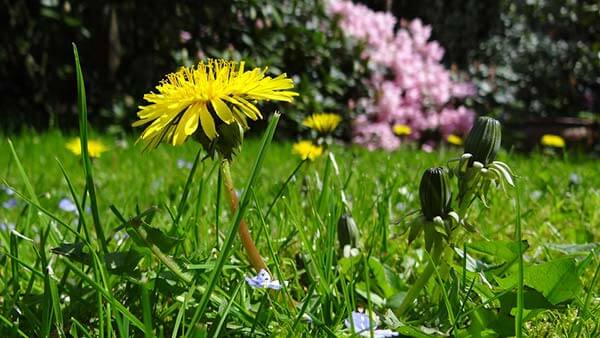
It sounds promising. I need to investigate more about this plant and will most definitely be harvesting it very soon. I won’t be able to take the flowers as they’ll be gone by then but I’m happy to get started with the greens.
What Are Dandelions Good For?
Well, it looks like they’re really good for a number of things. According to webMD they’re good for tonsillitis (study group ate soup containing dandelion), to prevent urinary infections (a combination of dandelion root and leaf extracts of a herb called uva ursi), loss of apetite, gas, upset stomach, constipation, arthritis.
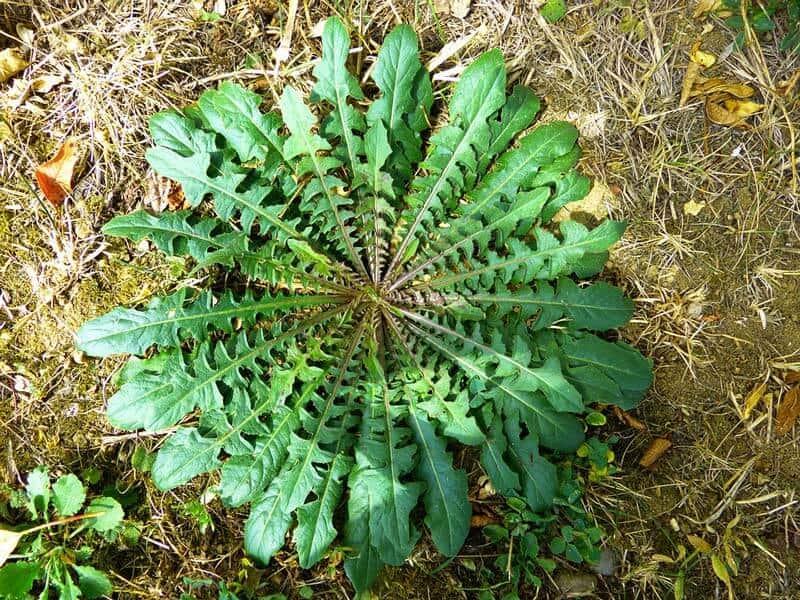
Side Effects
According to webMD is ‘likely’ safe when taken in amounts commonly found in food and ‘possibly’ safe when used in medicinal amounts.
It warns against using it when pregnant or breast-feeding because there’s not enough data, and it’s always best to avoid and stay safe.
It also suggests it can cause allergic reactions (ragweed allergy) when taken orally or when applied onto the skin, so sensitive people should avoid. If you’re allergic to chrysanthemums, marigolds or daisies you’re likely to also be allergic to dandelion as it is a related plant.
Interactions
Dandelion might interact with antibiotics (and decrease their effectiveness by decreasing the amount the body absorbs), lithium, medication changed by the liver (as it might decrease how quickly the liver breaks down some medications) and water pills (they can increase potassium levels in the body. Dandelion is high in potassium so you could end up with an amount of potassium in your body that is too high).
Leaf & Root
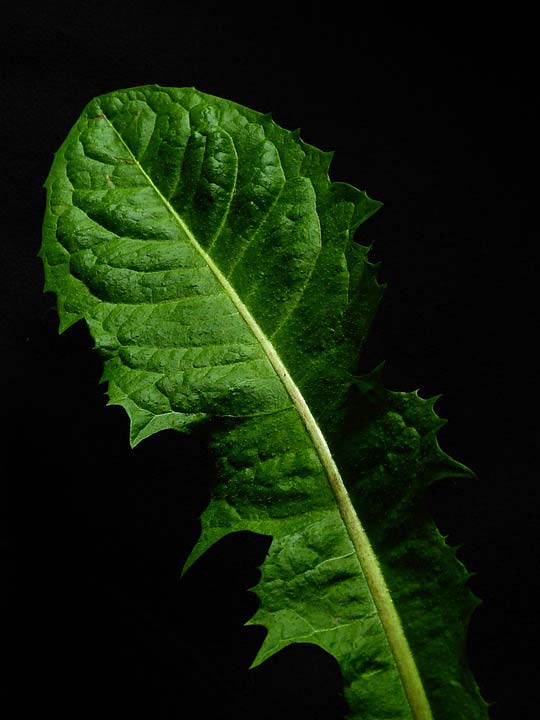
Dandelion Leaves Benefits
The leaves can be used as a diuretic in salads. The root is meant to be good for the liver. Dandelion is a diuretic and detoxifying plant.
According to my Encyclopedia of Herbal Medicine (Andrew Chevallier) [aff link here], the young leaves are picked in spring for tonic salads and then they’re used later as a medicine. The root is unearthed during the fall (the plant needs to be 2 years old).
The leaf has coumarins, carotenoids and minerals (particularly potassium). The root has taraxacosides, phenolic acids and minerals (potassium and calcium).
Dandelion greens are surprisingly nutritious. High in Vitamin A and Vitamin C, they also contain the micronutrient choline. Your body produces some choline, but choline in foods helps supplement what your body makes and supports healthy liver function by influencing several liver processes, including the circulation of bile and the metabolism of fats. (Corbin and Zeisel, 2013).
Source
Leaves Nutrient Content
In larger amounts
- potassium
- carotenes
- ascorbic acid
- calcium
- iron
- phosphorus
- B-vitamins
- protein
In lower amounts
- manganese
- sulphur
- magnesium
- silica
- vitamin D
Dandelion Roots Benefits
The roots are excellent for the liver as well as many other ailments:
Helps with acne, antifungal, antimicrobial, treats anxiety, increases appetite, for arthritis, cholesterol, urinary track support, constipation, for detox, for diabetes, gallbladder support, gallstones, flatulence, yeast infection, Hepatitis B & C, kidney support, liver support, menopause, flu, PMS, kidney stones, stress, upset stomach. Vitamin A, B complex, C and D, iron, manganese, phosphorus, carotenes, calcium, potassium, chromium, cobalt, niacin, riboflavin, silicon, sodium, zinc and ascorbic acid.
Dandelion root is used for its alterative action to cool inflammation, thin fluids, and cleanse the liver, gallbladder, and pancreas (Wood, 2008). Dandelion is both choleretic, increasing bile production in the liver, and cholagogue, causing the gallbladder to release bile (Wood, 2008) into the small intestine and aid in the digestion of fats. Be aware that due to its gentle improvement of bile flow, dandelion acts as a mild laxative (Tillotson, 2001).
Source
Roots Nutrient Content
In larger amounts
- iron
- manganese
- phosphorus
- carotenes
- protein
In lower amounts
- calcium
- magnesium
- potassium
- chromium
- cobalt
- niacin
- riboflavin
- silicon
- sodium
- zinc
- ascorbic acid
Source: Healing Wise (Wise Woman Herbal) by Susun S. Weed, 2003 (aff link here).
Dandelion Root and Cancer
In 2004 a study reported that the root had marked anti-cancer activity. Here’s another study on dandelion root extract and cancer.
What Makes it a Different Diuretic to Other Plants?
Dandelion leaf has an ‘aquaretic effect’. Having high levels of potassium there is no net loss of this mineral in the body while with other conventional diuretic which can leach potassium from the body (because of being rich in potassium content dandelion replaces what the body loses).
Dandelion Uses
- AS DIURETIC: dandelion leaf is generally used as a diuretic
- AS DIURETIC: dandelion leaf also treats high blood pressure
- AS DETOXIFYING: dandelion root is detoxifying and stimulates the liver to clear waste
- AS DETOXIFYING: dandelion root can treat constipation
- AS DETOXIFYING: dandelion root can treat skin problems (eczema) and arthritic conditions
- OTHER USES: dandelion root is a good prebiotic that supports the gut flora
The fresh leaves contain high levels of potassium and can be eaten in a salad for its cleansing benefits, juiced for fluid retention (20ml 3 times a day) or dried to be infused later, good for swollen ankles (500ml daily).
The root is harvested and then dried or roasted (plants that are 2 years old). Use for acne by taking 75ml of the tea 3 times a day.
The root is also used as a coffee replacement.
Other ways of taking dandelion would be in the form of tablets (diuretic effect, good when you have fluid retention), as tincture of the root (for ezcema 1/2tsp diluted with 100ml water 3 times a day) and as a tonic salad with borage flowers and calendula petals (very beautiful!).
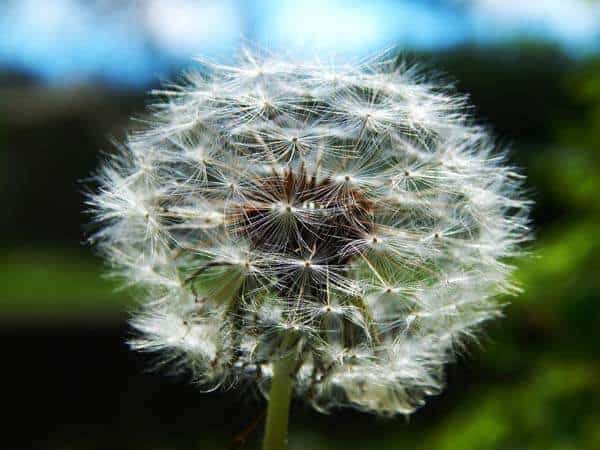
Impressed With this Survivor
I will be harvesting dandelion and using the leaves for now. I’ll probably dry some but will keep fresh ones at hand for the occasional diuretic tea. I like the idea of detoxifying every now and then and I think this plant the job really nicely!
Interesting Dandelion Books
I found these books (affiliate link) which I really like: The Ultimate Dandelion Medicine Book: 40 Recipes for Using Dandelion Leaves, Flowers, Stems & Roots as Medicine by by Kristina Seleshanko from Proverbs 31 Woman Blog. I love the idea of this dandelion book which is packed with medicinal recipes.
If you’re interested in many different dandelion recipes you can buy her other dandelion book (affliate link): The Ultimate Dandelion Cookbook. I’m not buying it because there are so many different books regarding cooking with plants that I need to go through that I just can’t add another one to my collection just now, but if I was going to buy one it would most definitely be this one by Kristina.
Did I Turn You Into a Dandelion Fan?
That’s it for now. I really, really hope I turned you into a dandelion fan… I surely am one!
Helpful Resources
– How to Use Dandelion Greens for a Healthy Liver
– Dandelion Root Medicine
– Dandelion Materia Medica
– Using Dandelion Medicinally
– Dandelion’s Health Benefits & More
– Eating Dandelion Flowers
– Dandelion and Fennel Kombucha
– Dandelion Flower Syrup
– Identifying Dandelions from Similar Herbs
– Rosemary Gladstar on Wild Greens (Podcast)
– Best Dandelion Root Tea Bags (I recommend a raw version and a roasted version)
– Sonchus Acaulis & Sonchus Congestus (similar to dandelion, in the Canary Islands)
